Engaging the Emotions in Spanish Culture and History
Rather than being properties of the individual self, emotions are socially produced and deployed in specific cultural contexts, as this collection documents with unusual richness. All the essays show emotions to be a form of thought and knowledge, and a major component of social life—including in the nineteenth century, which attempted to relegate them to a feminine intimate sphere.
The collection ranges across topics such as eighteenth-century sensibility, nineteenth-century concerns with the transmission of emotions, early twentieth-century cinematic affect, and the contemporary mobilization of political emotions including those regarding nonstate national identities. The complexities and effects of emotions are explored in a variety of forms—political rhetoric, literature, personal letters, medical writing, cinema, graphic art, soap opera, journalism, popular music, digital media—with attention paid to broader European and transatlantic implications.
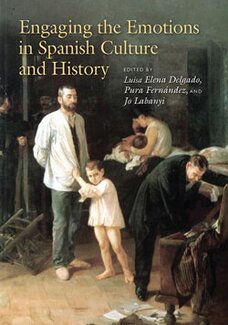
Displaying Death and Animating Life: Human-Animal Relations in Art, Science, and Everyday Life
The number of ways in which humans interact with animals is almost incalculable. From beloved household pets to the steak on our dinner tables, the fur in our closets to the Babar books on our shelves, taxidermy exhibits to local zoos, humans have complex, deep, and dependent relationships with the animals in our ecosystems. In Displaying Death and Animating Life, Jane C. Desmond puts those human-animal relationships under a multidisciplinary lens, focusing on the less obvious, and revealing the individualities and subjectivities of the real animals in our everyday lives.
Desmond, a pioneer in the field of animal studies, builds the book on a number of case studies. She conducts research on-site at major museums, taxidermy conventions, pet cemeteries, and even at a professional conference for writers of obituaries. She goes behind the scenes at zoos, wildlife clinics, and meetings of pet cemetery professionals. We journey with her as she meets Kanzi, the bonobo artist, and a host of other animal-artists—all of whom are preparing their artwork for auction. Throughout, Desmond moves from a consideration of the visual display of unindividuated animals, to mourning for known animals, and finally to the marketing of artwork by individual animals. The first book in the new Animal Lives series, Displaying Death and Animating Life is a landmark study, bridging disciplines and reaching across divisions from the humanities and social sciences to chart new territories of investigation.
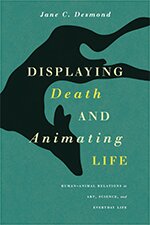
Descended from Hercules: Biopolitics and the Muscled Male Body on Screen
Muscles, six-pack abs, skin, and sweat fill the screen in the tawdry and tantalizing peplum films associated with epic Italian cinema of the 1950s and 1960s. Using techniques like slow motion and stopped time, these films instill the hero’s vitality with timeless admiration and immerse the hero’s body in a world that is lavishly eroticized but without sexual desire. These “sword and sandal” films represent a century-long cinematic biopolitical intervention that offers the spectator an imagined form of the male body—one free of illness, degeneracy, and the burdens of poverty—that defends goodness with brute strength and perseverance, and serves as a model of ideal citizenry. Robert A. Rushing traces these epic heroes from Maciste in Cabiria in the early silent era to contemporary transnational figures like Arnold Schwarzenegger in Conan the Barbarian, and to films such as Zach Snyder’s 300. Rushing explores how the very tactile modes of representation cement the genre’s ideological grip on the viewer.
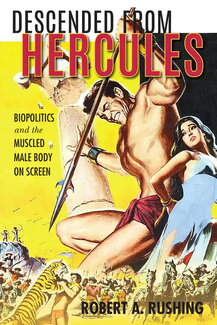
The Rhetoric of Hindu India: Language and Urban Nationalism
This book examines the late twentieth-century rise of the urban, right-wing Hindu nationalist ideology known as metropolitan Hindutva. This ideology, the book assesses, aspires to be a pan-Indian, urban form that is home to the emerging, digitally enabled, technocratic middle classes of the nation. Through close analyses of the writings of a range of self-styled public intellectuals, from Arun Shourie and Swapan Dasgupta to Chetan Bhagat and Amish Tripathi, this book maps this new avatar of Hindutva. Finally, in analyzing the language of metropolitan Hindutva, it arrives at an emerging idea of India as part of what Amitav Ghosh has called a contemporary Anglophone empire. This is the first extended scholarly effort to theorize a politics of language in relation to the dangers of such an imperializing Hindutva.
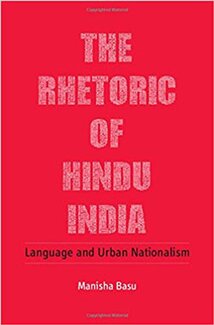
Fashioning Lives: Black Queers and the Politics of Literacy
Fashioning Lives: Black Queers and the Politics of Literacy analyzes the life stories of sixty Black lesbian, gay, bisexual, transgender, and queer (LGBTQ) people along with archival documents, literature, and film. Author Eric Darnell Pritchard provides a theoretical framework for studying the literacy work of Black LGBTQ people, who do not fit into the traditional categories imposed on their language practices and identities. Examining the myriad ways literacy is used to inflict harm, Pritchard discusses how these harmful events prompt Black LGBTQ people to ensure their own survival by repurposing literacy through literacy performances fueled by accountability to self and communal love towards social and political change, a process the author calls “restorative literacies.” Pritchard highlights restorative literacies in literacy institutions (e.g., libraries, schools), historical records repositories, religious and spiritual spaces, parties, community events, activist organizations, and digital spheres. This trailblazing study draws connections between race and queerness in literacy, composition, and rhetoric and provides the basis for a sustainable dialogue on their intersections in the discipline.
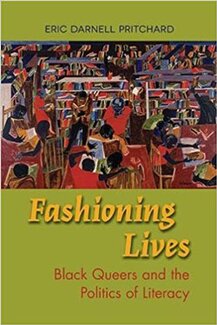
Lughz al-Qaf, Arabic translation from the Portuguese O enigma de Qaf, by Alberto Mussa
اللغز هو اللغة العربية ذاتها ، أصلها وتقاليدها ، وبدواتها ، وحريمها ، وحسابها ، وكتابتها ، وقصة تتعدد رواياتها فتصعب على التصديق . مما يزيد من سحرها. فى " لغز القاف" يلعب الروائى البرازيلى ألبرتو موسى دور باحث ينشد الحصول على شهادة فى الادب الجاهلى ، فيدور بمؤتمرات الادب العربى ومتاهات المكتبات ، ويوازن بين الأصالة والزيف فى نصوص عمرها مئات السنين ، وكان مرشده قصاص أعمى هو خورخى لويس بورخيس. ينتج عن هذه الرحلة الأدبية نثر شعرى ذو جمال نادر ، تتخلله معارف عن عالم شرقى قديم وشاسع ، طالما افتتن الغرب بتخيله . ولكتن ما يخبلنا غير محصور بعالم أسلاف الكاتب ذو الجبال الخرافية ، والشعراء ، والعفاريت الأسطورية . إنها الكتابة العربية ، تللك الشخصية التى تضاهى فتنتها كل ما سواها فى لغز القاف.
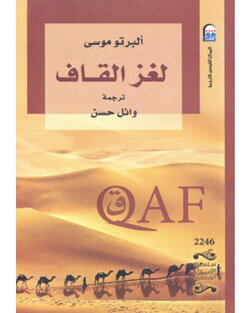
Racial Prescriptions: Pharmaceuticals, Difference, and the Politics of Life
In the contemporary United States, matters of life and health have become key political concerns. Important to this politics of life is the desire to overcome racial inequalities in health; from heart disease to diabetes, the populations most afflicted by a range of illnesses are racialized minorities. The solutions generally proposed to the problem ofracial health disparities have been social and environmental in nature, but in the wake of the mapping of the human genome, genetic thinking has come to have considerable influence on how such inequalities are problematized.Racial Prescriptions explores the politics of dealing with health inequities through targeting pharmaceuticals at specific racial groups based on the idea that they are genetically different. Drawing on the introduction of BiDil to treat heart failure among African Americans, this book contends that while racialized pharmaceuticals are ostensibly about fostering life, they also raise thorny questions concerning the biologization of race, the reproduction of inequality, and the economic exploitation of the racial body.
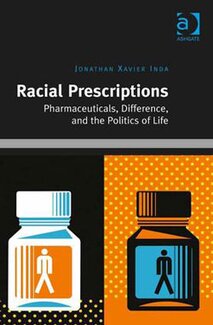
After the Revolution: Youth, Democracy, and the Politics of Disappointment in Serbia
What happens to student activism once mass protests have disappeared from view, and youth no longer embody the political frustrations and hopes of a nation? After the Revolutionchronicles the lives of student activists as they confront the possibilities and disappointments of democracy in the shadow of the recent revolution in Serbia. Greenberg's narrative highlights the stories of young student activists as they seek to define their role and articulate a new form of legitimate political activity, post-socialism.
When student activists in Serbia helped topple dictator Slobodan Milosevic on October 5, 2000, they unexpectedly found that the post-revolutionary period brought even greater problems. How do you actually live and practice democracy in the wake of war and the shadow of a recent revolution? How do young Serbians attempt to translate the energy and excitement generated by wide scale mobilization into the slow work of building democratic institutions? Greenberg navigates through the ranks of student organizations as they transition their activism from the streets back into the halls of the university. In exploring the everyday practices of student activists—their triumphs and frustrations—After the Revolution argues that disappointment is not a failure of democracy but a fundamental feature of how people live and practice it. This fascinating book develops a critical vocabulary for the social life of disappointment with the aim of helping citizens, scholars, and policymakers worldwide escape the trap of framing new democracies as doomed to failure.
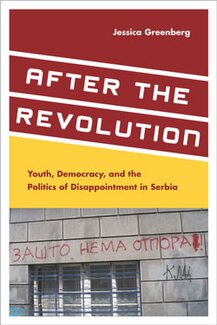
How To Interpret Literature: Critical Theory for Literary and Cultural Studies, Third Edition
Offering a refreshing combination of accessibility and intellectual rigor, How to Interpret Literature: Critical Theory for Literary and Cultural Studies, Third Edition, presents an up-to-date, concise, and wide-ranging historicist survey of contemporary thinking in critical theory. The only book of its kind that thoroughly merges literary studies with cultural studies, this text provides a critical look at the major movements in literary studies since the 1930s, including those often omitted from other texts. It is also the only up-to-date survey of literary theory that devotes extensive treatment to Queer Theory and Postcolonial and Race Studies. How to Interpret Literature is ideal as a stand-alone text or in conjunction with an anthology of primary readings such as Robert Dale Parker's Critical Theory: A Reader for Literary and Cultural Studies.
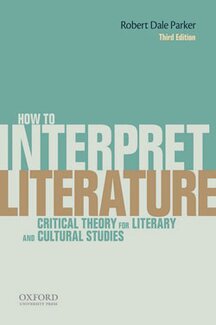
Governing Immigration Through Crime: A Reader
In the United States, immigration is generally seen as a law and order issue. Amidst increasing anti-immigrant sentiment, unauthorized migrants have been cast as lawbreakers.Governing Immigration Through Crime offers a comprehensive and accessible introduction to the use of crime and punishment to manage undocumented immigrants.
Presenting key readings and cutting-edge scholarship, this volume examines a range of contemporary criminalizing practices: restrictive immigration laws, enhanced border policing, workplace audits, detention and deportation, and increased policing of immigration at the state and local level. Of equal importance, the readings highlight how migrants have managed to actively resist these punitive practices. In bringing together critical theorists of immigration to understand how the current political landscape propagates the view of the "illegal alien" as a threat to social order, this text encourages students and general readers alike to think seriously about the place of undocumented immigrants in American society.
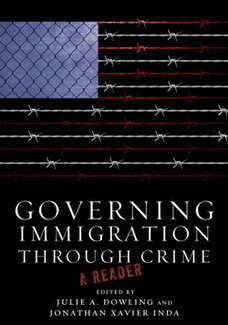
100 English Building
608 South Wright Street
Urbana, Illinois 61801